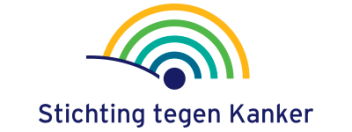Home

Katleen De Preter
- Senior Full Research Professor, BOF-ZAP, Ghent University, Belgium & VIB Group Leader, 2022-present
- Full Research Professor, BOF-ZAP, Ghent University, Belgium, 2019-2022
- Full Professor 10%, Ghent University, Belgium, 2014-2019
- Associate Professor 10%, Ghent University, Belgium, 2011-2014
- Postdoc: Ghent University, Belgium, 2004-2019
- PhD: Ghent University, Belgium, 2004
In 2000, Katleen De Preter obtained a Master in Bioscience Engineering (Major Cell and Gene Biotechnology) at Ghent University. During her PhD (FWO) and post-doctoral fellowship (IWT and FWO), she was involved in genomics profiling of neuroblastoma tumors aiming to identify new vulnerable markers for therapy and better biomarkers for prognosis and prediction. Since 2011, Katleen became part-time professor at the Department of Biomolecular Medicine (Ghent University) and started the research lab of Translational Onco-genomics and Bio-informatics. In 2019, she obtained a position as full professor with a BOF-ZAP grant. In May 2019, her work on biomarkers for neuroblastoma was rewarded with the Antoine Faes price and in 2022 she obtained an ERC consolidator grant for the “EpiGuide” project.
Intro research focus
The major research theme of our lab is the development of analytical and bio-informatic pipelines for diagnostic, prognostic and predictive analysis enabling precision oncology. An important challenge in precision oncology is the heterogeneity of the tumor, including intertumoral and intra-tumoral heterogeneity as well as spatial and temporal heterogeneity. We aim to develop novel tools that allow mapping of this (epi)genetic tumor heterogeneity, further aiding in patient management and therapy stratification. To this end we can rely on a unique expertise that is positioned at the interface between technological/bioinformatic development and clinical validation/implementation. The tumor (epi)genetic heterogeneity is investigated by analyzing tumor tissue samples as well as minimally-invasive liquid biopsy samples that enable longitudinal monitoring of the heterogeneity. Over the past years, we have optimized the processing of liquid biopsy samples for the analysis of (epi)genetic biomarkers and has gained expertise in computational deconvolution and single-cell omics data mining. Previous research projects have already resulted in new biomarkers for the pediatric cancer, neuroblastoma. More recently, we have also started working on other pediatric cancers and adult cancers (i.e., lung, prostate, esophageal cancer, amongst others).





